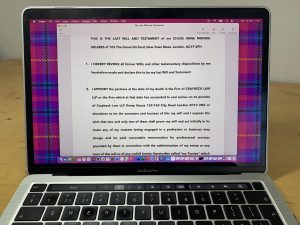CALL US FOR A FREE CONSULTATION
MENUClose
- Home
- Services
-
-
- Lasting Powers of Attorney
- Types of Lasting Power of AttorneyA Lasting Power of Attorney (LPA) allows you the donor to appoint someone you trust to make decisions in the future if you are unable to understand or decide for yourself.
- Why make a Lasting Power of AttorneyThere is a choice. There is no requirement for someone to make a lasting power of attorney. If they wish they may decide not to make one and let the stranger, their doctor, the social worker or the court they may have never met make decisions for them. It's really their choice.
- Choosing Your AttorneyChoosing Your Attorney
- Sufficient Mental Capacity
- Determining best interestsDetermining best interests
- Attorney’s ResponsibilitiesAttorney’s Responsibilities
- What can an Attorney do
- Business LPAA business Lasting Power of Attorney allows the donor to appoint an attorney to make decisions concerning their business interests, when they are unavailable or lack mental capacity.
- Managing Incapacity
- Lasting Powers of Attorney
-
- Wills
- What is a WillWhat is a Will
- Emergency Will / Death Bed WillFrom time to time we are asked to attend hospitals or care homes where someone’s death is imminent. This might be where someone is dying and they have requested they want to make their will before death.
- Statutory wills
- Valid WillValid Will All wills created in English and Wales have to comply with Wills Act 1837. This in principle creates three requirements.
- Trusts
- Wills
-
- Safeguarding Vulnerable Adults
- Safeguarding Vulnerable AdultsEvery adult is entitled be autonomous and have their choices respected. They should not be forced or coerced into doing things against their will. They should be free to live their life from fear or anxiety and be treated with dignity.
- Signs of abuse Signs that someone is affected by abuse will differ between individuals, manifesting in different ways, for example:
- Vulnerable Adult DisputesLocal authorities are required to conduct assessments, provide services and information to vulnerable adults. Mostly this process works well. If it does not a vulnerable adult may be exposed to risk or abuse. We can assist families to resolve these issues.
- Contentious ProbateDisputing the Will Sometimes concerns arise over the will’s validity. All wills should be checked when probate is being undertaken to see if they are valid. Concerns which often arise might be -
- Safeguarding Vulnerable Adults
-
-
-
- Private Clients
- Individual ClientsWe help individual clients and their families understand their legal issues and provide solutions for them. We found it's mostly the solutions people are looking for. Our solicitors can advise on numerous legal topics to provide ways forward.
- Community care lawCommunity care law includes many areas of a vulnerable adult's life.
- Making Decisions For OthersThese let you make decisions for someone who lacks mental capacity to decide for themselves.
- Private Clients
-
-
- Our Fees
- Contact us
- BBC Response

